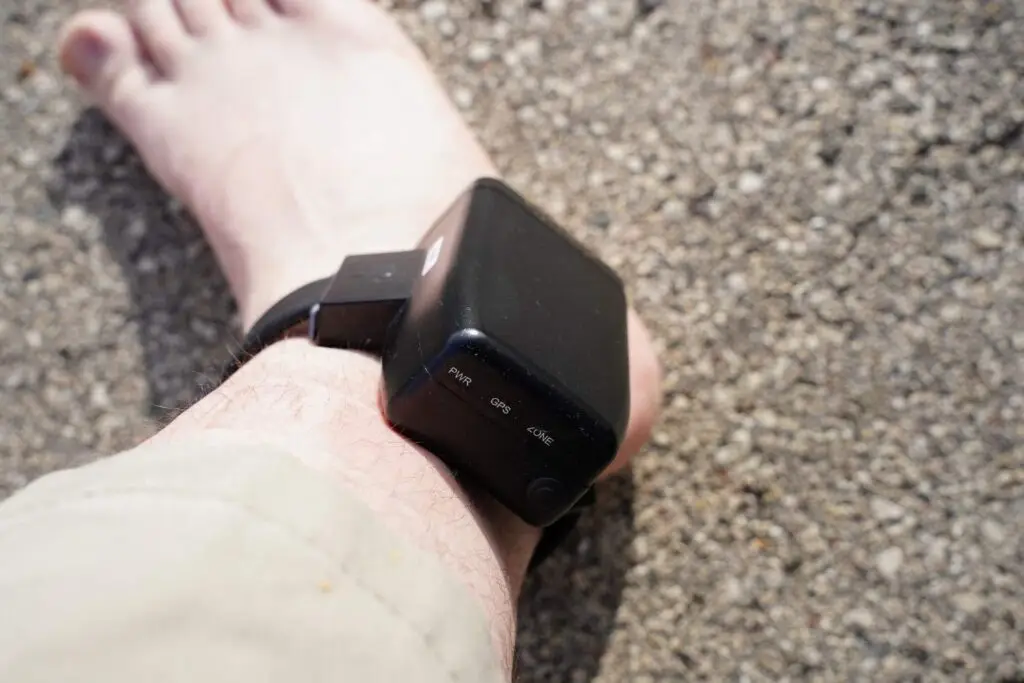
At Walk Em Out Bail Bonds, we strive to simplify the bail process during challenging times. GPS monitoring serves as an essential tool to help individuals comply with court orders while maintaining their daily routines. This guide provides an in-depth look at GPS monitoring and its benefits for those in Wichita, KS.
Setting Up GPS Monitoring with Walk Em Out Bail Bonds
Establishing GPS monitoring with Walk Em Out Bail Bonds involves several steps
Consultation
Discussing your case with our team to understand how GPS monitoring can benefit your specific situation and ensure compliance with court orders.
Documentation
Completing the required paperwork to formalize the monitoring agreement and outline the terms and conditions.
Installation
Our professional team securely installs the GPS device and provides comprehensive instructions on its use and maintenance. This includes educating the wearer about the restrictions and compliance requirements.
Ongoing Monitoring
Continuous, real-time tracking begins immediately, with our support team available to assist and guide you throughout the monitoring period, ensuring any issues or concerns are promptly addressed.
How GPS Monitoring Operates
Here’s a detailed explanation of GPS monitoring:
Geofencing
Geographic limits are established based on court orders. If these boundaries are crossed, alerts are triggered immediately, allowing authorities to respond swiftly.
Alerts
Any attempt to tamper with or remove the device results in instant alerts to monitoring personnel, ensuring prompt action to address potential violations.
Continuous Monitoring
The device transmits continuous location data to monitoring authorities, ensuring up-to-the-minute updates on the individual's whereabouts.
Installation
A professional from Walk Em Out Bail Bonds securely attaches the GPS ankle bracelet to the individual. This process includes educating the wearer on the device's functionality and restrictions.
Benefits of GPS Monitoring
GPS monitoring offers several significant advantages:
Peace of Mind
Both defendants and their families can feel secure knowing that movements are being closely monitored, reducing anxiety and stress during the bail period.
Ensures Compliance
Helps individuals stay within court-approved areas, significantly reducing the risk of missed court appearances and additional legal issues.
Minimizes Flight Risk
Continuous tracking makes it difficult for individuals to flee, thereby upholding the integrity of the legal process.
Daily Routine Maintenance
Allows individuals to continue working, attending school, and fulfilling family duties within set boundaries, maintaining normalcy and stability in their lives.
Advantages Over Incarceration
GPS monitoring presents several benefits compared to jail time
Lower Recidivism Rates
Provides a structured environment that helps reduce the likelihood of re-offending by ensuring continuous monitoring and accountability.
Community Participation
Allows individuals to continue contributing to society by maintaining employment, education, and family responsibilities.
Cost-Effective
It is generally less expensive than incarceration, saving public funds and reducing the financial burden on the individual.
What is GPS Monitoring?
GPS monitoring involves the use of a small, tamper-resistant device, commonly an ankle bracelet, that utilizes satellite technology to track an individual’s movements. This advanced technology ensures adherence to court-ordered boundaries and schedules, providing peace of mind to both the courts and families. These devices are particularly useful for individuals deemed a flight risk or those under house arrest. They offer precise, real-time tracking monitored by law enforcement or bail bond companies like Walk Em Out Bail Bonds.
When is GPS Monitoring Required?
Courts may mandate GPS monitoring in various cases, including:
Protection Orders
Enforcing court-mandated restrictions to prevent contact or proximity to certain individuals.
Spousal Abuse
Ensuring the defendant maintains a safe distance from the victim, as mandated by the court.
High-Risk Offenders
For those with a history of skipping court dates or posing a significant flight risk.
Probation and Parole
Keeping track of individuals on probation or parole to ensure they adhere to the conditions of their release.
House Arrest
Monitoring individuals allowed to stay home instead of being jailed to ensure compliance with house arrest conditions.
Child Protection
Monitoring individuals in cases where child safety is a concern, such as custody disputes or protection from abuse.
Domestic Violence
Ensuring defendants stay away from victims by enforcing no-contact orders and specific geographic restrictions.
Compliance Guidelines and Restrictions
Adhering to GPS monitoring involves specific restrictions, including:
Exclusion Zones
Avoiding specified locations, such as the victim’s residence in domestic violence cases, to ensure no-contact orders are upheld.
Curfews
Staying within designated areas during certain hours, such as being at home during nighttime hours to comply with curfew orders.
Geofencing
Remaining within set geographic boundaries defined by the court, which are monitored in real-time to prevent violations.
Non-compliance with these guidelines can lead to severe legal repercussions, including re-arrest, additional charges, and potentially harsher penalties.
Frequently Asked Questions about GPS Monitoring
How accurate is GPS monitoring?
What if I accidentally leave a designated area?
Can the device be tampered with?
Does GPS monitoring detect alcohol consumption?
Can I shower or swim with the GPS bracelet?
How long must I wear the GPS device?
What should I do if my GPS device malfunctions?
Is my privacy protected?
Will the device affect my daily activities?
Can the GPS device track my indoor movements?
Can others detect my GPS tracker?
Get your loved one out of Jail from the
comfort of your home!
- Day or Night, We’re Here — Pickup Included!
